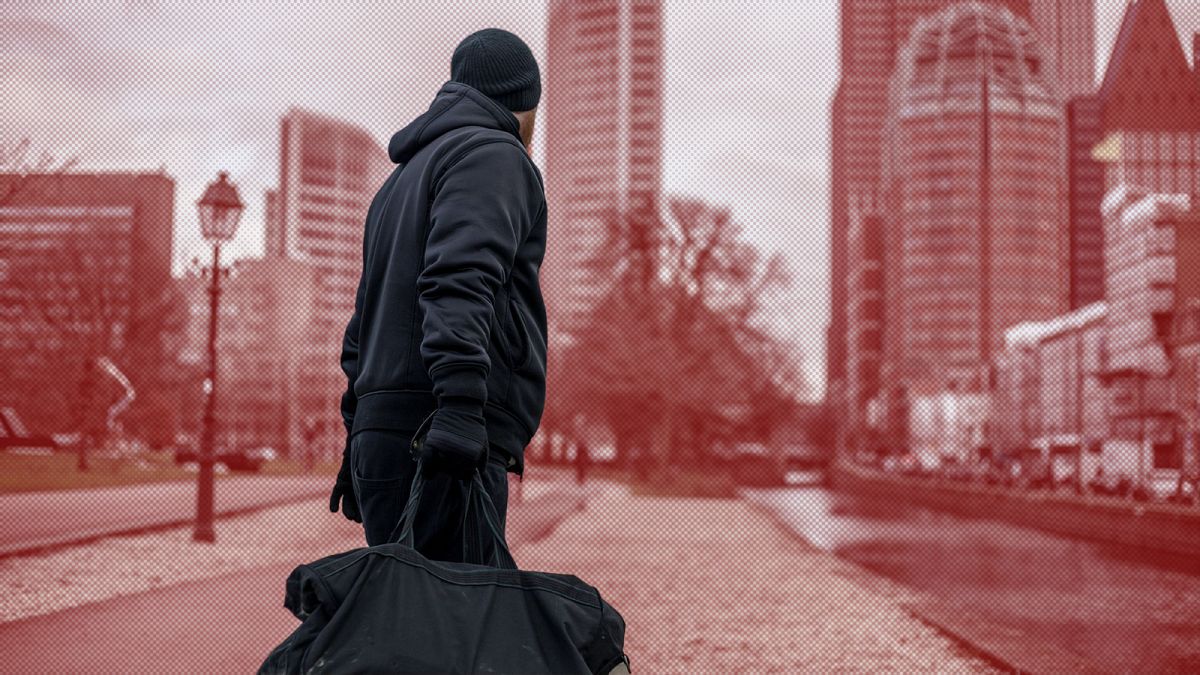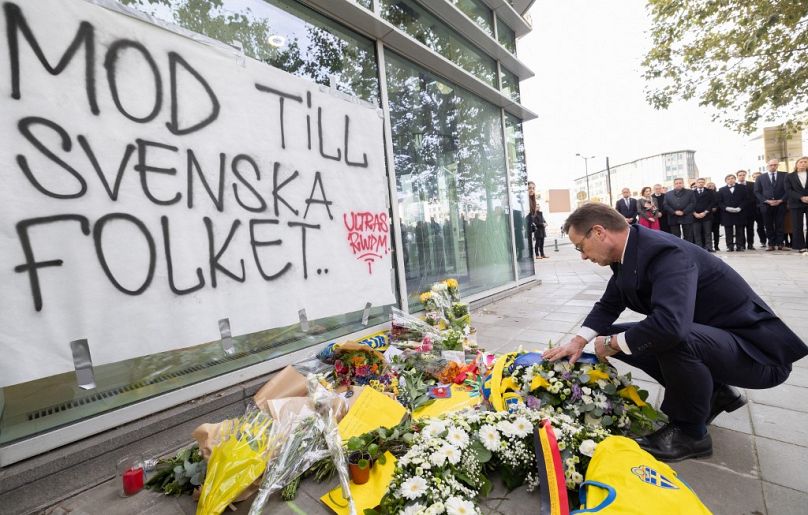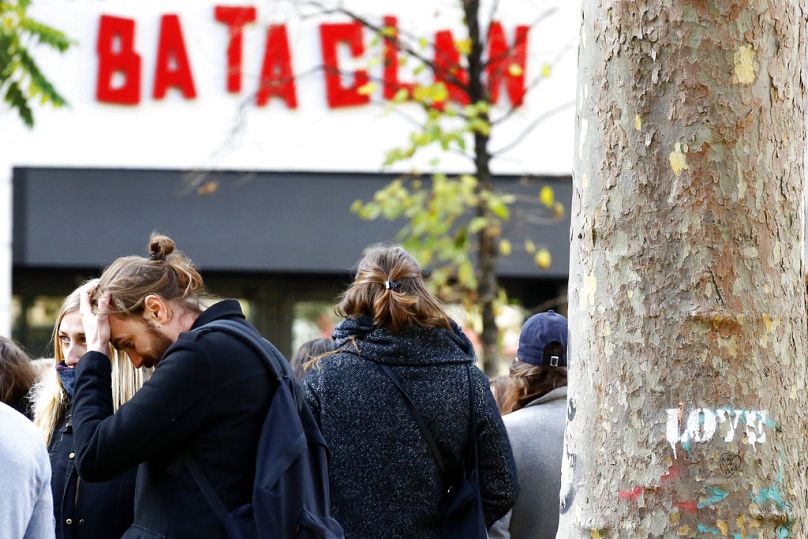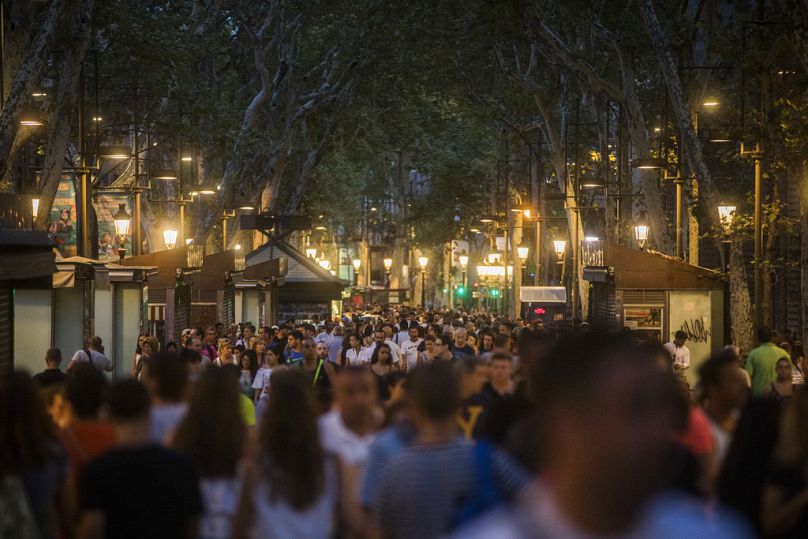Europol warns that lone actors will carry out the majority of terrorist attacks in the EU - with Islamist terrorism the biggest threat in Western Europe.
Just a week ago, Abdesalem Lassoued plunged the city of Brussels into chaos.
Not even his wife or his closest friends knew that the Tunisian, who was in Belgium illegally, was about to commit an act of terrorism.
After he shot dead two Swedish citizens and wounded a third to 'avenge Muslims', his wife, who worked in a hairdressing salon, took refuge in a local police station with their daughter.
"I never noticed anything or saw any signs of radicalisation. We were a couple like any other," she told Belgian media.
Hours after the attack, Islamic State claimed that Lassoued was a "fighter" for the terrorist organisation. However, local authorities suggested that he had acted alone.
"The lone wolf hypothesis seems the most likely," said federal judge Frederic Van Leeuw. But a few days into the investigation, French prosecutors charged two more people over the attack.
While many questions remain unanswered, the country has raised its terror alert.
And it is not the only one in Europe to be particularly vigilant: the actions of Islamists in France and Germany have rung alarm bells.
Islamist terrorism remains the biggest terror threat in Western Europe and “lone actors are expected to continue to perpetrate most of the terrorist attacks in the EU”, Europol’s Spokesperson, Jan Op Gen Oorth, told Euronews.
What the organisation is suggesting is that lone wolves may not be so lonely, as the process of recruitment and radicalisation is organised.
So who's recruiting Europe's biggest terror threat?
All wolves are part of a pack
Within six days in October, two lone wolf Islamist attacks took place in France and Belgium, with a stabbing at a school in northeast France coming just before the Brussels shooting.
Since then, Europol has confirmed that it is monitoring events on a daily basis and taking precautionary measures following the escalation of the conflict between Israel and Hamas.
Spain alone has more than 300 lone wolves under surveillance, according to the newspaper El Mundo, as it is a transit country for many radicals from North Africa to Europe.
"If we analyse terrorism in the EU, we see that after the wave of attacks it suffered in the context of the Syrian war, the intensity started to decrease since 2018," Carola García-Calvo, senior researcher on global terrorism at Madrid's Elcano Royal Institute, told Euronews.
The attack on the Bataclan concert hall in Paris was the last "sophisticated" attack coordinated by the Islamic State, after which Europe has seen only lone wolf attacks.
"What we often see is that although they carry out their acts alone, the investigation later reveals that the attacker had contacts with other people linked to terrorist groups. It turns out that they were not as alone as they seemed," adds García-Calvo.
How are lone wolves recruited?
The figures in Europol's latest EU terrorism situation and trends report are clear. In 2022, out of 330 terrorism arrests in Europe, 266 were jihadist terrorists.
The spread of online propaganda and its potential for radicalisation is a key concern.
It makes it easier for vulnerable people with no previous or direct links to terrorism to be exposed to radical content and ideas.
“Terrorist networks may target these vulnerable individuals and manipulate them to commit terrorist acts as lone actors, seemingly alone, but in reality serving the objectives of the larger networks,” said Jan Op Gen Oorth, from Europol.
“Social isolation and lack of a solid support system remain key vulnerabilities. Terrorists exploit these vulnerabilities to spread their message and recruit new followers. This is particularly worrying given the growing number of young people, including minors, who are exposed to terrorist propaganda online”, he added.
Major global terrorist groups, such as Al-Qaeda or the Islamic State, have turned to the Internet because their external operational apparatuses have been severely damaged, according to the researcher at the Royal Elcano Institute.
"For this reason, the preferred strategy of these groups in Europe at the moment is that of individual actors who share the ideology and objectives of the organisation and who mobilise spontaneously," García-Calvo adds.
Among the most worrying profiles for security forces are those who have been in conflict zones, known as "foreign fighters", and those who have been identified by networks to take the next step and attack individually.
"In the old days, you had to go to a meeting of different people who would talk about the latest speech of a jihadi scholar. Nowadays, with just five clicks, you can find propaganda books and manuals on how to carry out a knife attack," says Olivier Cauberghs, former Belgian Federal Police detective and radicalisation expert at Textgain.
"The internet has speeded everything up because it is easy to get this information," he adds.
‘No EU country free from threat'
The seismic shock of the war between Israel and Hamas has already been felt in Europe.
The call for global jihad by Khaled Meshal, the political leader of Hamas fighters and one of the group's founders, left European cities fearing the worst.
"The Israeli-Palestinian conflict is a key recurring element in jihadist propaganda. It is used to further incite the mobilisation of sympathisers of groups linked to global jihadism," says García-Calvo.
"Today, we cannot say that any country in Europe is free from this threat. Although there are some that are more affected, such as France, Belgium, the United Kingdom or even Spain," she adds.
As police focus on these individuals, Europol warns that the radicalisation process is becoming increasingly decentralised and volatile.
"Diffuse actors connect and inspire each other, uniting behind grievances that transcend ideology or group affiliation," says Jan Op Gen Oorth.
Experts point to the media as a means of amplifying terrorist propaganda.
"The media gives a lot of details about the attacker and his life. People see that this person is a human being like anyone else, and they want to follow in his footsteps because they identify with him," says Cauberghs.
"That's why we should be very careful about what we share online, so that terrorists are not made into heroes, martyrs or saints," he adds.



